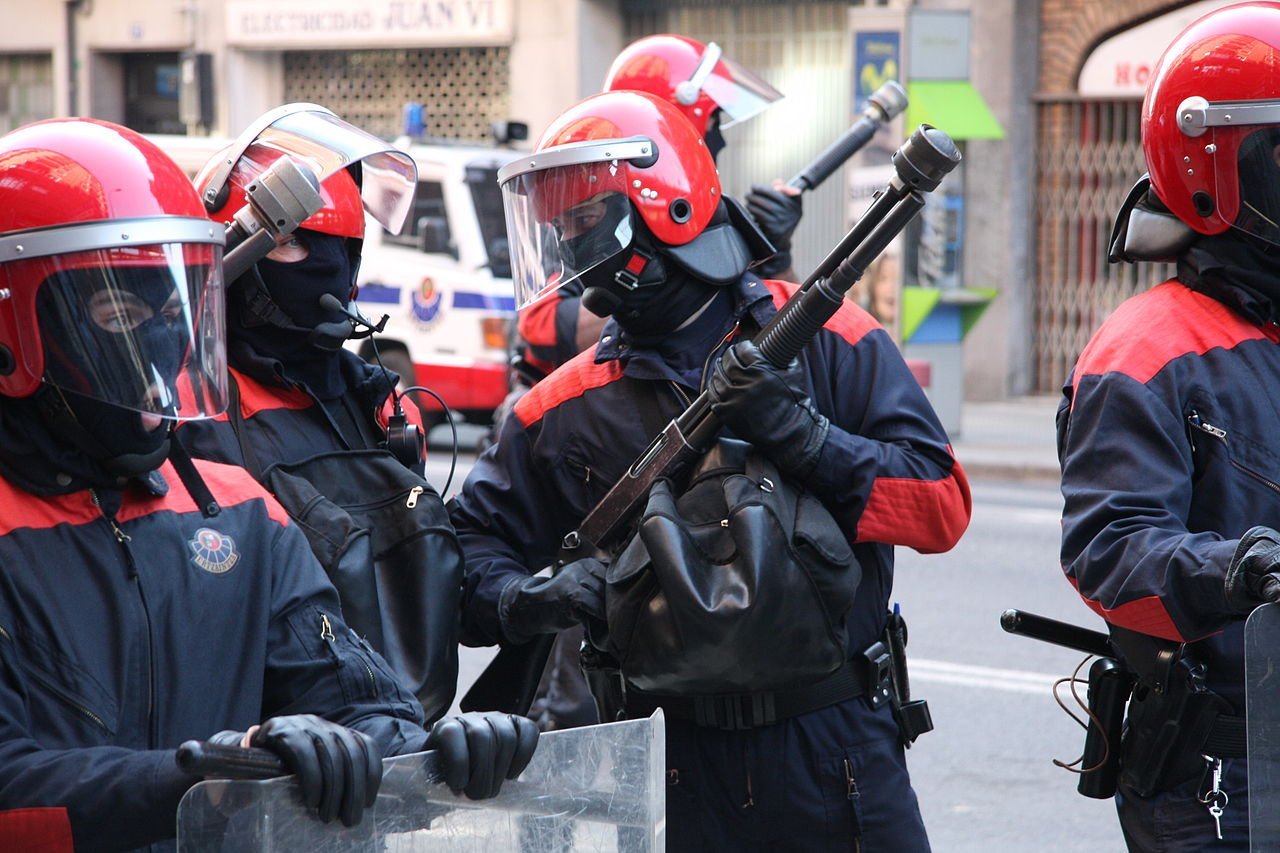SPAIN: Human rights organisations and victims join forces in a campaign calling for a state ban on rubber bullets
Article published by Irídia – Center for the Defense of Human Rights on 15/02/2022 (unofficial translation in English by the European Civic Forum)
The second session of the paper discussing the amendments of the parliamentary groups to the reform of the Citizen Security Act, known as the Gag Law, takes place today. Taking advantage of the situation, the Stop Balas de Goma collective, with the support of Irídia and Novact, presents a new spot to demand that the groups ban these projectiles throughout the state and guarantee the comprehensive repair of people. affected.
In their complaint, they warn that it is a weapon that does not comply with international standards for the use of force, both for its harmful potential and for its unpredictability and randomness. In this sense, they remind us that there is no going back and call on organizations and groups across the state to sign the manifesto in favor of its ban: #StopBalasGoma.
The video includes testimonies of people affected by rubber bullets, such as Ester Quintana, Nicola Tanno, Carles Guillor, Óscar Alpuente, Aingeru Zudaire, Fina Liceranzu – mother of Iñigo Cabacas -, or Roger Español. It also includes the case of Tarajal, in which the use of rubber bullets against people swimming across the border was decisive in drowning at least 14 of them.
The launch of the spot is also part of the set of activities planned for the tenth anniversary of the death of Iñigo Cabacas, in April 2012, at the hands of the Ertzaintza. Among these activities, organized by the Iñigo Cabacas Platform, is the presentation of the “Stop Rubber Bullets” Report in Bilbao, this Wednesday, February 16th.
The report documented at least 40 people affected by rubber bullets between 2000 and 2020. Most suffered impacts in vital areas of the body, such as the head and eyes. Eleven have lost sight of one eye.
Manifesto promoted by Irídia – Center for the Defense of Human Rights and NOVACT – International Institute for Nonviolent Action
In the past years, 40 people have been victims of rubber bullet impacts in Spain. In Iñigo Cabaca’s case, the impact of a rubber bullet in his head caused his death. In the Tarajal tragedy, the use of rubber bullets aimed at people that were swimming towards the coast was a determining factor of their deaths by drowning. In this last two decades, 11 people have lost their sight in one of their eyes.
According to international and national legislation, the use of force by the state’s law enforcement agents must respect the principles of legality, necessity, caution, proportionality, non-discrimination, and accountability. According to international law, rubber bullets shouldn’t be used indiscriminately nor automatically, and therefore, they mustn’t be used to disperse a demonstration or a clustering. Likewise, they shouldn’t be used against people that are swimming or crossing a border fence.
The United Nations Guidance on less-lethal weapons forbids shooting in people’s head, neck, chest and groin, nor in other areas where an impact can cause particularly serious injuries. Nonetheless, more than half of the documented rubber bullet impact victims were shot in the head, and six other on the upper part of their body. Any weapon capable of producing a lethal impact should be subject to the same legal process and investigation proceeding following the incident than the rest of conventional weapons.
The traceability of rubber bullets when fired is impossible due to the lack of identification marks on the ammunition and the weapons, as well as due to the randomness of their track. Rubber bullet weapons are outdated and can’t meet the accountability standards that the international legation require. The lack of access to information impact directly on the accountability mechanisms: there is not any known judicial proceeding for causing injuries or death because of a rubber bullet impact. In none of the cases, the author of the shot has been sentenced.
The use of rubber bullets as punishment, retaliation or discrimination can be considered as torture or cruel, inhumane and degrading treatment, as the UN Convention against Torture establishes. Multiple resolutions of the European Parliament have decidedly expressed that rubber bullets should be banned in all the European Union countries.
More and more countries have suspended the use of rubber bullet weapons, such as: Austria, Denmark, Finland, Ireland, Norway, Romania, Sweden, as well as almost all the states in Germany. The high lethal potential of rubber bullets and the inability to predict their trajectory are the reasons why the use of this ammunition was banned for Mossos d’Esquadra in Catalonia, the regional police of Navarra and the Ertzaintza in Euskadi. However, rubber bullets are still being used by the National Police Corps and the military police throughout the whole of the national territory.
The signing associations of this manifesto demand, in order to offer an answer in accordance with the human rights of the rubber bullet impact victims in Spain, as well as in accordance with their right to the truth, the reparation and the non-repetition of this incidents:
To the Spanish Government:
The approval of the ban on the use of rubber bullets from the State’s law enforcement agents, according to their damage potential, the impossibility of their traceability, their indiscriminate use, which puts the exercise of human rights and physical integrity of citizens at risk.
To the Parliamentary groups of the Congreso de los Diputados:
The approval of a nonbinding law that pressures the Spanish government to ban the use of rubber bullets from the State’s law enforcement agents.
The creation of a commission of inquiry that addresses the cases of rubber bullet impact victims and determines the impact on society of these weapons and their ammunition.
#StopBalasGoma
- For more information, you can consult:
- Report Stop Balas de Goma here;
- Spot Stop Rubber Bullets:

